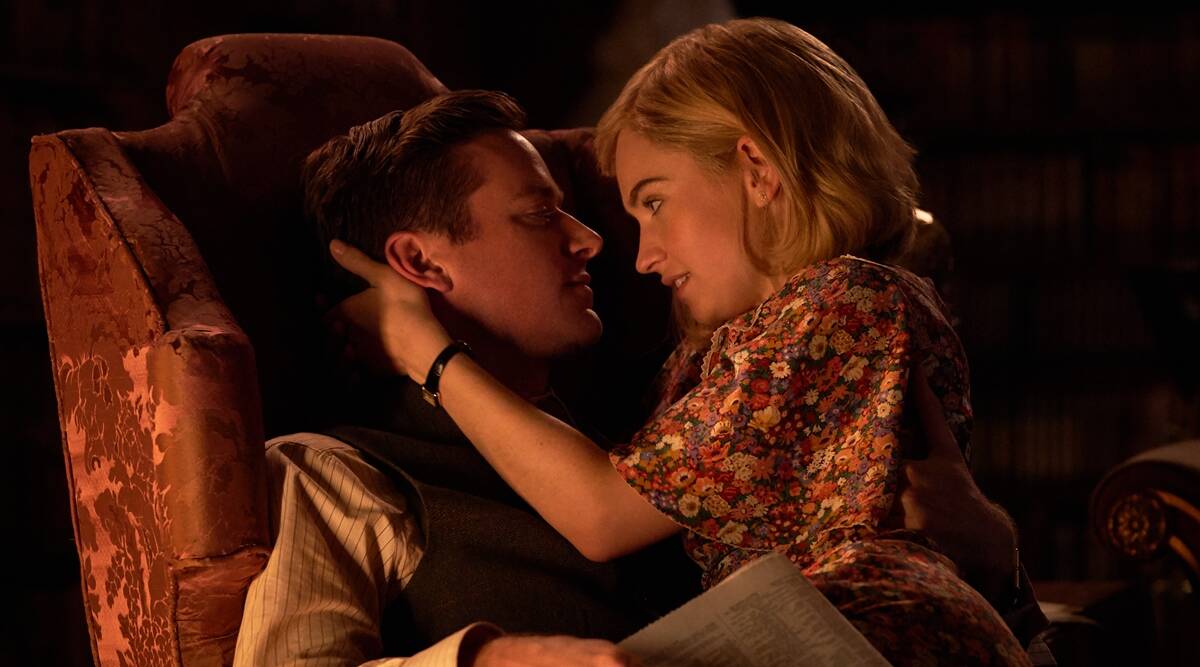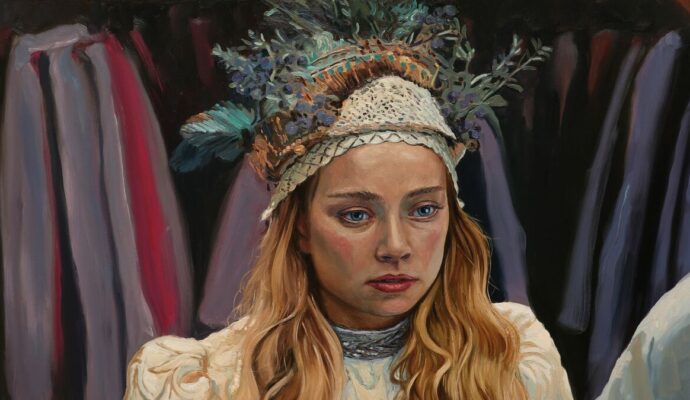“Rebecca” – Ever been to Monte Carlo?
Yea, me neither, and the beyond-picturesque, seaside playground for the megarich – that sits in the French Riviera – is a bucket list trip, for sure. To boot, the Cannes Film Festival is just 55 kilometers southwest along the A-8, so let’s make a second stop during a future holiday in May.
For the moment, this critic will have to look back at memories of an NCAA Basketball Tournament weekend at Las Vegas’ Monte Carlo Hotel about 20 years ago, but I bet a dollar that the views of the Jardin Exotique de Monaco and the Oceanographic Museum top the sights of a 5-dollar blackjack table at 3 a.m. on the Vegas Strip.
Just a little.
For a working-class girl (Lily James), her trip to Monte Carlo is a dream come true. This unnamed early 20-something is an assistant for snotty and snooty Mrs. Van Hopper (Ann Dowd), a wealthy, older socialite who isn’t very skilled at making friends. She frequently delivers orders and dismisses her ward with seemingly each breath.
“Honestly, everything I’m teaching you, you ought to be paying me,” Van Hopper snarls.
Nice, but for 90 pounds a year and the chance for world travel, our young heroine will endure her employer’s putdowns, jabs, and bullying. Her life, however, theatrically changed when Maxim de Winter (Armie Hammer), her version of Prince Charming, appears before her eyes.
She meets this tall, debonair, affluent widower at a posh hotel’s restaurant on two consecutive mornings, which blossoms into a week-long dream of drives in a 3.5L Bentley, a stroll at Monaco-Ville, and sun and drinks at the beach. To her surprise, her dance of romance turns into a marriage proposal, and the new Mrs. Maxim de Winter moves into his sprawling English estate called Manderley.
(Not Mandalay Bay, that’s in Southern Nevada.)
Director Ben Wheatley (“High-Rise” (2015)) remakes Alfred Hitchcock’s Best Picture Oscar winner “Rebecca” (1940) – based on Daphne Du Maurier’s novel – but admittedly, I haven’t seen Hitch’s film nor read the book and cannot compare them to 2020’s reincarnation.
The title character refers to Maxim’s first wife, a gorgeous, educated trendsetter with a Hollywood movie star’s charisma, and her surviving husband is left picking up his emotional pieces scattered all about his massive home. Our protagonist is now living in her shadows at Manderley, and the house’s caretaker Mrs. Danvers (Kristin Scott Thomas) isn’t doing her any favors. Danvers could be Nurse Ratched’s refined fraternal twin, and Wheatley wouldn’t be out of line by crashing thunder and flashing lightning during each on-screen appearance. Think Frau Blucher from “Young Frankenstein” (1974). Danvers is that intimidating, as she eerily repeats Mrs. Van Hopper’s cruel intentions but with more panache.
The second Mrs. de Winter feels massive burden and anxiety, and James is convincing as a virginal, inexperienced replacement. She’s afraid of making social miscues, which is only reinforced when she eventually makes them. Since Maxim semi-drops the man-of-her-dreams routines once they get settled, she feels alone – like an awkward, abandoned queen – in this British Palace of Versailles.
Wheatley and cinematographer Laurie Rose capture drop-dead (pardon the pun) gorgeous locales and old money. You could almost smell the cash, stocks, and bonds. Meanwhile, costume designer Julian Day matches the attractive co-stars with exceptionally striking, dapper textiles from the period (sometime in the 1930s, possibly 1936), including a mustard suit for Mr. de Winter and a grey wool jacket and black beret for the Mrs., that made this fashion-illiterate bachelor take notice.
The film looks great, and Wheatley and the cast build a foundation for an engaging drama, but the narrative and pacing feel schizophrenic. Mrs. de Winter rows against Rebecca’s tide for the film’s first 80 minutes, and then the tones change into something entirely different for the last 40. An altered storyline emerges (that will not be revealed in this review), as Wheatley and James hustle through a catalog of major life events to lunge towards a rushed conclusion. In other words, the third act feels like a tacked-on cheap trick.
Speaking of tricks, a sketchy dream sequence and two random flocks of CGI birds offer a few head-scratchers too and don’t help the cause.
An ode to Hitchcock, perhaps?
Well, this version of “Rebecca” seems better suited as a 6-part, 4-hour series, so the story has room to breathe, and the filmmakers could – early on – place clues and subplots that establish the surprises in the third act. Instead, the film leaves us with an unsatisfying ending due to the film’s construction, completely separate from any joy or gloom that the de Winters may feel by the end credits.
Where have I felt that quasi-empty sentiment before? Ah, somewhere in Nevada.
Monte Carlo and Cannes Film Festival…I hear you calling me.
⭐⭐ out of ⭐⭐⭐⭐
Image and Trailer credits: Netflix




